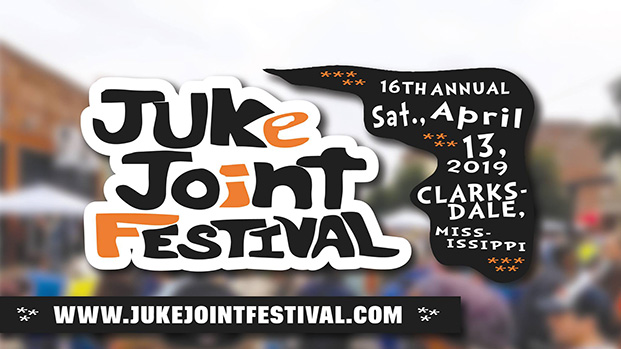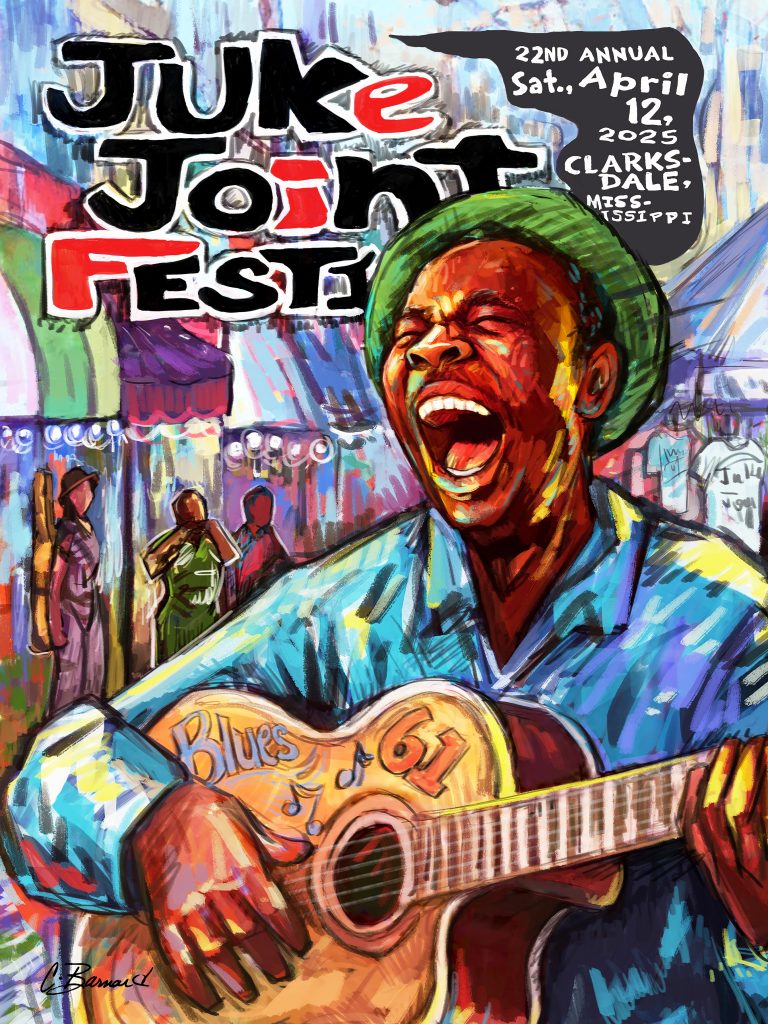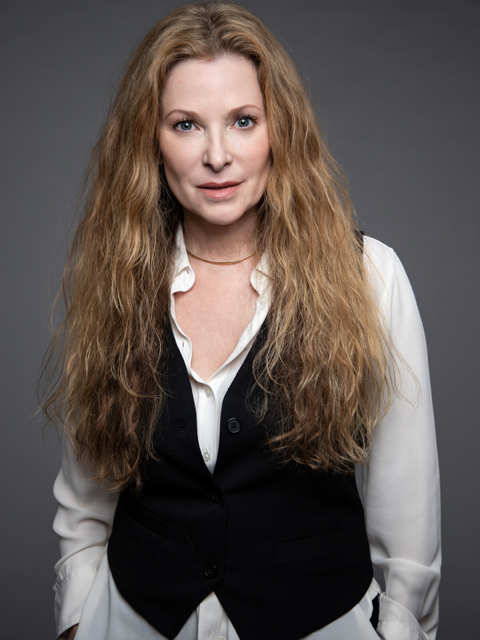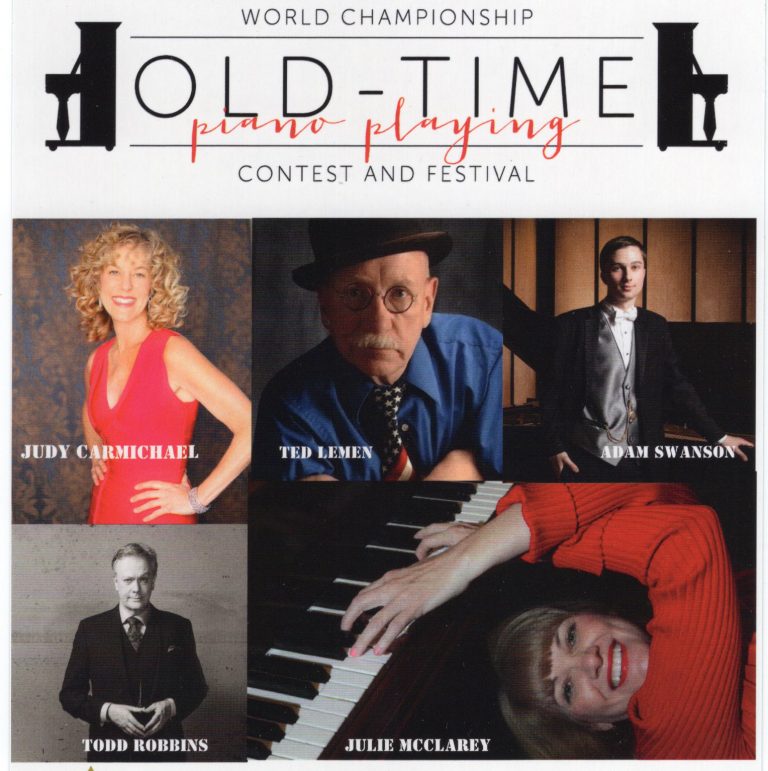

Many places lay claim to the title of the “Home of Rock ‘n’ Roll.” Cleveland, Ohio, has The Rock and Roll Hall of Fame; Los Angeles is where almost all record labels are headquartered, but neither is the fountain from which rock sprang. Memphis has always trumpeted its place in Rock history, as Elvis Presley’s home. So, here is what you do: Go to Memphis. Take I-55 South. Just a few miles outside of town, you will see a sign that says, “Welcome to Mississippi: The Birthplace of America’s Music.” Now you are officially in the home of the Blues and all of its bastard children, including Rock ‘n’ Roll.
From the Delta to the Hill Country, from Clarksdale to Jackson, and from Parchman Penitentiary to Biloxi, Mississippi has long been steeped in the history of modern music, producing artists like Robert Johnson, Ike Turner, Son House, Muddy Waters, RL Burnside, BB King—all Blues legends. The Blues grew and migrated from its roots in the cotton fields and churches of Mississippi to the larger towns farther north, with Memphis and Chicago being the metropolitan hot spots for musicians to play and hopefully get discovered while laying down on vinyl their music and tales of good whiskey and bad women. For generations these recordings inspired an endless number of budding young musicians. Elvis, Jerry Lee Lewis, Eric Clapton, Gregg and Duane Allman, The Beatles, The Rolling Stones, and Chuck Berry all were struck when they heard those 12-bar Blues progressions and sorrowful howling vocals. There is no other place but Mississippi that could give birth to this kind of music.
This is why Dayton, Ohio-native Roger Stolle gave up a successful career in marketing and moved to Clarksdale in 2002, chasing that “devil music” in hopes of spreading the word of the Blues. Roger is the owner of Cat Head Delta Blues and Folk Art Inc and cofounder of The Juke Joint Fest, which will celebrate its 16th incarnation starting Thursday, April 11. I talked with Roger to see what makes someone pack up everything and head down South.

“My first real musical memory is the death of Elvis. That was a big deal as a ten-year-old. It was all over the news and even made the front page of our local paper in Dayton. All of a sudden, his music and movies were everywhere I looked. I really dived into his music and started picking up 45s and, of course, a lot of his early music was Blues based or even just Blues covers, which is how I was introduced to the Blues.”
Clarksdale is one of the major stops along the Blues Trail in the Delta, and is the birthplace of many influential musicians such as Ike Turner, Nate Dogg, Son House, Sam Cooke, and John Lee Hooker. It was the destination for most Blues players who first made their way from the fields of the Delta, onward to Memphis and further north to Chicago. It is home of the Delta Blues Museum and boasts the Crossroads where Robert Johnson sold his soul to the devil for a chance at fame and fortune. When Roger first started visiting Clarksdale in the ‘90s, he found a city in desperate need of help.
“I started coming to Clarksdale after living in St. Louis for a while. I was doing the ‘Deadman Blues Tour,’ going to the homes and important Blues sights around the area. I was really shocked that I couldn’t find any live Blues, in what is the home of it, and no one really seemed concerned about this.”
Disheartened by the lack of live music, returning home, Roger came up with a plan.
“When I first moved down here and opened my store, I had ‘I Heart Clarksdale’ bumper stickers made up and locals actually laughed at me for that! But the few tourists who came through during those early days ate those up. In my first few weeks after moving, I started attending City Hall meetings. At the end, they would always have an open topic section, and I stood up one time to address the lack of live Blues here. One older guy stood up and said ‘The Blues is not gonna save our town,’ and I agreed . . . but [said] that it was a big piece of the puzzle that could.”

Most of the last juke joints had long faded away, and the few that were still open were plagued with violence. The Blues was a thing of the past in Clarksdale. Generations had passed since the first pioneers wrote their cadences to the sounds of the work gangs on the side of the road, all furnished by Mississippi’s infamous convict leasing program. This younger generation of citizens preferred a live DJ or Rhythm and Blues and Hip Hop to the stories of struggle and strife from the checkered and scarred past.
“Most of the bands who were inspired by the Blues—Led Zeppelin, Clapton, Stevie Ray Vaughn—had all been out for quite a bit by this time, and the current music scene was filled with bands and performers who were two generations or more removed from [their] influence. Pop music, which of course was really booming, was not inspired by the Blues. It’s too polished and pretty to be, so all of the people enamored with it, usually, had no idea about the Blues. The tourists who came to Clarksdale were Blues purists who wanted to see the ground zero of where it started. That was why I wanted to have a festival here that would showcase just that and someplace where tourists and locals could mingle and talk about the music.”
Today, most Blues connoisseurs are just that, tourists. The Blues exploded into Europe, where the culture that bore the music was read about in books and seen on the silver screen. The demographic of the music also shifted here in the States from being a solely African American genre to being appreciated by more diversified consumers.
“When I first started coming here, you were lucky to find live music two or three nights a week. Now we have it 365 days a year. Twenty years ago, if you sat in Red’s Lounge, the makeup of the audience would be 98 percent African American. There may have only been 15 people there. Now, it’s 98 percent white and packed. Some people were worried about how locals would react to my bringing in outsiders to the area . . . [but] those tourists . . . were not taking local seats in the venues, they were filling empty ones. With every little ‘pop culture’ moment for the Blues, like Blacksnake Moan, we would see an increase in tourism. With most people driving or flying from a good distance away, they of course were going to stay for at least a day or two, which meant more hotels . . . more places for them to dine . . . more jobs for the area. The resurgence in vinyl records has made a big impact as well. People want the real deal, and if I can put that record in someone’s hand, that makes it even better.”
Roger’s plan to transform a city he cherished started to take effect, bit by bit. Once-shuttered and dilapidated former venues opened anew, invigorated by people drawn to Clarksdale who were willing to invest in the town’s future. City leaders were starting to tout the Blues as they saw the power that it had in bringing much-needed capital and jobs to the area. The Juke Joint Festival grew every year, attracting larger crowds.
“We have some great volunteers. In 2016 we had them go through the crowd and gauge the make-up of the audience. We had Blues lovers from 26 countries, 46 states, and over 60 different Mississippi counties there. We really try and have something for everyone to make it an old-fashioned town festival, not just for the Blues fan. We have monkeys who ride dogs! We try and make it a family affair for sure.”
The 16th Annual Juke Joint Festival will kick off Thursday, April 11 with 117 musical acts filling every music venue in Clarksdale. There are free daytime stage performances all throughout the festival, workshops, cultural exhibits, and art. Friday night will feature a live Thacker Mountain Radio Hour broadcast, but Saturday night will spotlight the main musical performances. Advance wristbands are available for $20, also available for $25 the day of the event, and the wristbands will get you into every venue. For more information and full music performance schedule, visit www.jukejointfestival.com or check out their Facebook, www.facebook.com/jukejointfestival





1 thought on “16th Annual Juke Joint Festival Begins April 11”